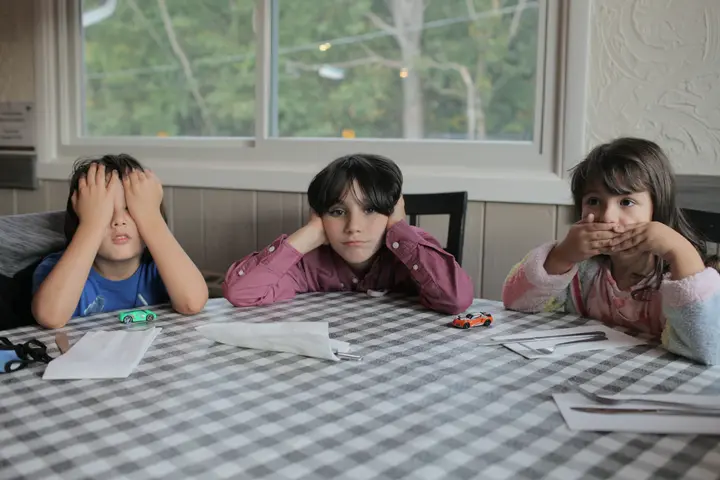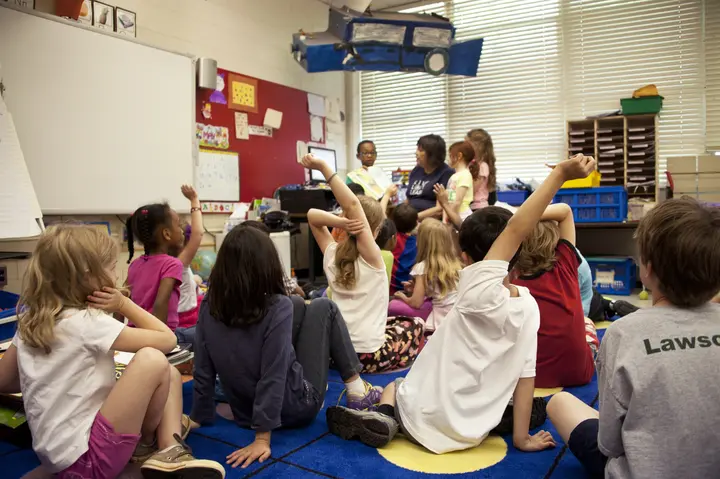Why do my children behave well with others and then behave badly with me?

Parents may be aware of this scenario: the child is well behaved at school and polite to his teachers, but suffers from a breakdown at home in the afternoon,
Show key points
- Children often behave better in public or at school because expectations are clear, routines are structured, and rewards for positive behavior are consistent.
- At home, children may misbehave more due to fatigue, the comfort of familiarity, or because they know how parents will react to their actions.
- Behavior in children is shaped by the consequences it produces, and even negative behaviors can be reinforced if they receive attention or rewards.
- ADVERTISEMENT
- Parents sometimes unintentionally encourage undesirable behavior by giving in to whining or by over-engaging during misbehavior.
- Kids can exhibit good behavior at home if similar strategies used in school—like clear rules, routines, and positive reinforcement—are applied consistently.
- Establishing routines, recognizing good behavior, and setting simple, clear expectations can make a noticeable difference in a child's behavior at home.
- Focusing on realistic goals and maintaining regular, positive interactions with children help build stronger bonds and reduce behavioral issues.
Or they tell you please and thank you at a friend's house, but they are rude to their families. They follow the rules if they visit a neighbor, but they should be constantly reminded not to close doors and raid the pantry at home.
Why is it happening? And is there anything you can do about it?
Children learn early on that their behavior is important

Even children with good behavior misbehave from time to time.
When young children feel tired, such as after a playtime or a long day at nursery or school, they may become nervous and annoying. Children are also curious by nature, and can sometimes misbehave just to see what's going on.
Recommend
However, some children seem to behave worse at home than they do with other people. To understand this phenomenon, it is necessary to understand why children behave the way they do.
From the outset, the child's behavior leads to results or outputs. For example, babies quickly learn that crying is a very effective way to signal that they are in distress. Parents quickly learn to change a wet diaper or feed their babies when they cry. A smile often leads to returning the smile to an adult, cooing or hugging them.
So children quickly realize that their behavior can be an effective way to control the actions of others.
Bad behavior pays off

Children's behavior, whether desirable or undesirable, is influenced by the consequences that result from it.
Sometimes, parent or sibling reactions can reward misbehavior by mistake, and children learn that unwanted behavior is rewarded.
For example, children may learn that when they don't do what they're told, they get extra attention from their parents. This interest may be trial, discussion, argument, grumbling, or repeating instructions over and over again. This may not be seen as a "reward" for adults, but children get more attention from the mother or father.
Children may also learn that when they complain about an electronic device, they are more likely to get it.
Unfortunately, in this scenario, the child is rewarded for complaining, and the parents are rewarded for giving him an iPad as it stops the very annoying noise (at least in the short term). With both the child and parent rewarded, this interaction is likely to happen again.
Why are children better at school?

When children are with people they don't know, they don't know how others will respond, or what behavior will lead to a reward. In these circumstances, it is common to have fewer unwanted behaviors, at least temporarily.
Children can also behave better at school than at home because teachers have very good systems. Children remain busy with a variety of engaging activities, expectations of children's behavior are clear, and reward for desired behavior is reliable. Teachers are well versed in recognizing and rewarding desired behavior through attention, praise and sometimes symbolic reward systems.
Children also tend to imitate the behavior of their peers, especially if they see it as achieving results, such as teacher attention or access to valuable activities.
How can parents help their children behave better at home?

The good news is that if children behave well in certain conditions, we know that they are able to do the same at home.
Parents can appreciate children's need to relax at home, while expecting them to be polite and follow the rules. By making a few small changes, it is usually possible to see much better behavior.
Here are some practical things parents can do:
1. Establish routines. Set a routine when your child comes home from school or picnics. This may include allowing your child to relax and rest, giving them a healthy snack, and then preparing them for an engaging activity. Routines make it easier for everyone to move from one arrangement to another. It's best to include activities — such as coloring or running outside — that calm or burn energy.
2. Make simple home rules. Make some simple rules that show your child how you expect them to behave. For example: "Use an inside sound" or "Keep toys on the floor."
3. Observe good behavior. Let your child know when he is doing the right thing. Do this by describing what makes you happy ("You two share the game wonderfully"). This will make it more likely that this behavior will occur again.
4. Spend small periods of time with your child regularly. This is especially important when your child approaches you for help or attention. It shows that you are there for them and that they do not need to raise their voice or act to get your attention. Spending small periods of time — less than a minute or two — often throughout the day is a powerful way to strengthen your relationship with your child and prevent problematic behaviors.
5. Have realistic expectations. Change is easier when you focus on one or two goals at a time. Also, when you seek behavior improvement, expect occasional relapses. No child (or parent) is perfect!








